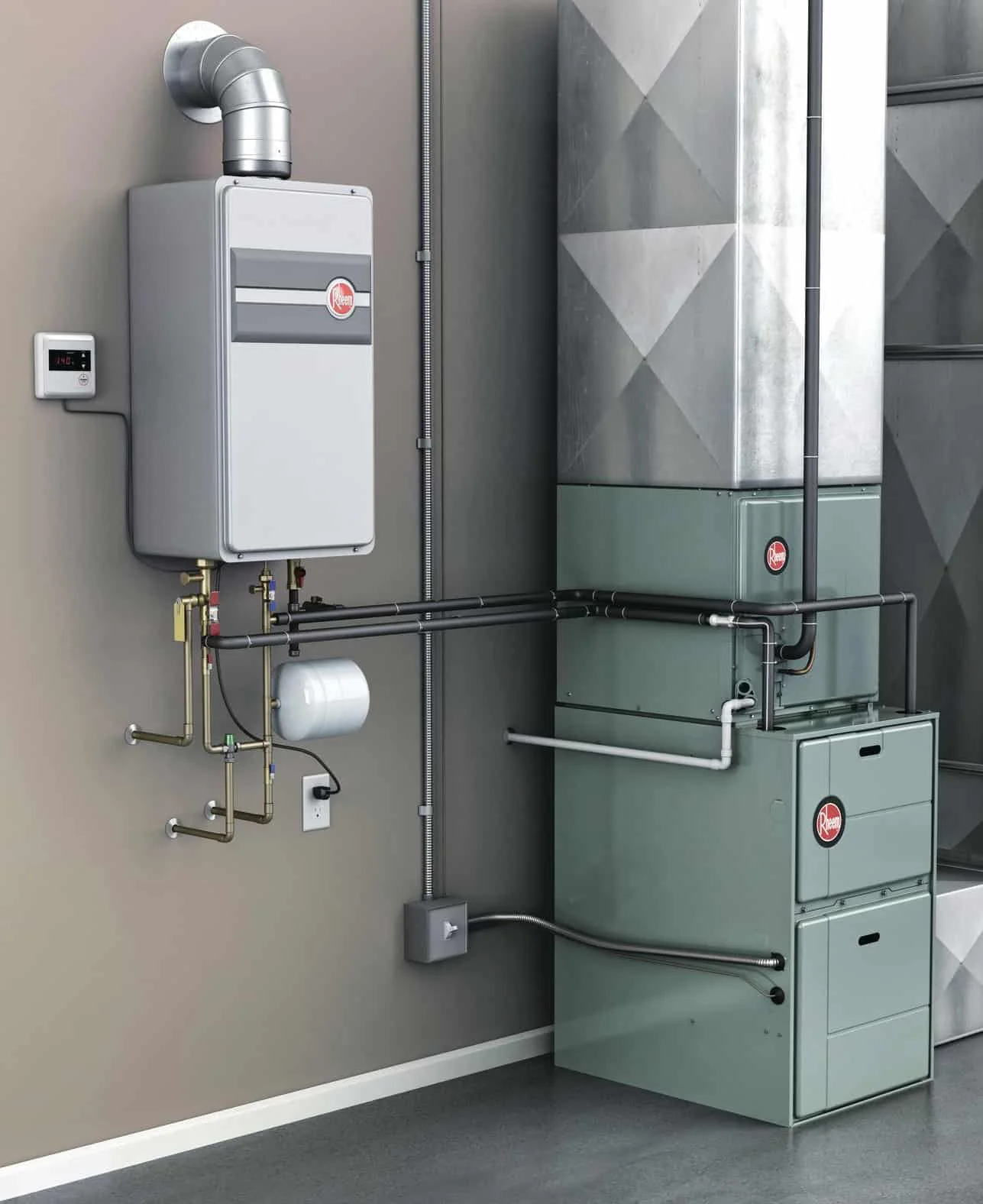Water heating accounts for approximately 17% of your homes energy usage, more than all other appliances combined. If you think about heating 50 gallons of water in your tank around the clock it seems wasteful, right? Luckily, there is another option available – tankless. This guide will help you determine if going tankless is a good choice for you.
Things to consider:
Energy Efficiency –
The majority of customers we talk to about switching to tankless “on-demand” water heaters are interested for the energy savings which equate to a lower utility bill. In reality, a tankless unit is not going to save you that much money monthly. The estimated yearly energy cost for a tankless unit is $225 (this can vary slightly depending on the model) in comparison to a standard natural gas tank at about $315 a year. Those savings come out to approximately $7.5 a month. It’s up to you to decide if that’s enough savings to recoup from the higher installation costs.
Initial Cost of Unit & Installation –
Tankless water heaters cost much more than your traditional unit, pair that with a more involved installation and venting process and you’re looking at about 2-3x the cost of a standard tank. An additional point to consider is the size of the existing gas line in your home, many service lines need to be up-sized to provide enough fuel to these water heaters which is an additional installation expense. Venting is also another huge factor in determining if an on-demand is a good fit for your home, it is very important they are vented properly.
Lifespan –
A standard model will last around 10-15 years on average depending on usage, maintenance and water quality. An on-demand unit boasts a 20 years lifespan, most coming with a 10 year warranty.
On-demand water heaters use less energy than their storage tank cousins. But is it enough to warrant the higher installation cost?
Tankless water heater are great space savers.
Maintenance –
Gas-fired tankless water heaters require maintenance, this includes a de-scaling of mineral buildup from the heat exchangers inside the unit. The frequency of this maintenance depends on the hardness of the water being ran through it, some need it annually and others can go 5 years without service.
Space –
A storage tank takes up a lot more space than a tankless water heater, if you have close quarters this may be a perk for you. Outdoor units are also available, saving valuable space inside your home and eliminating any venting concerns.
Limitless Hot Water –
One of the biggest pros is endless hot water. On-demand heaters quickly warm up water as a fixture is turned on through the units heat exchanger rather than heating a storage tank full of water day and night. In theory, you could take as long of a shower as desired since water is being heated as you need it.
Demands/GPM –
The downside to limitless hot water is the cap on the supply. Meaning, if a dishwasher, shower, and a wash machine are running at the same time, the heater may not be able to keep up with the sudden demand leaving someone in the cold. This likely isn’t a problem for individual or small-family households, but is something larger families may want to consider.
Hot Water Delay –
When you turn on your kitchen faucet, cold water is drawn into the heater and begins to circulate, activating the heat source which in turn warms up the heat exchanger. Once the water is up to temperature it leaves the unit and finds its way to your faucet. This whole process takes time, so do not expect hot water to arrive at your faucets the moment they are turned on.
In Conclusion:
Tankless water heaters are a great choice for many homes, though there are important factors to consider when looking to make the switch. The pros of on-demand units include a long lifespan, lower energy consumption, limitless hot water and have a smaller footprint. A few drawbacks are a higher initial cost to purchase and install, a delay of hot water to fixtures, the cap in the flow rate, and perhaps not as large of monetary savings month-to-month as we would like to see. There are also other options on the market to weigh, such as hybrid heat pump and power vent water heaters. Our experienced technicians would be happy to consult with you in your home to see which tank makes the most sense for your family.


